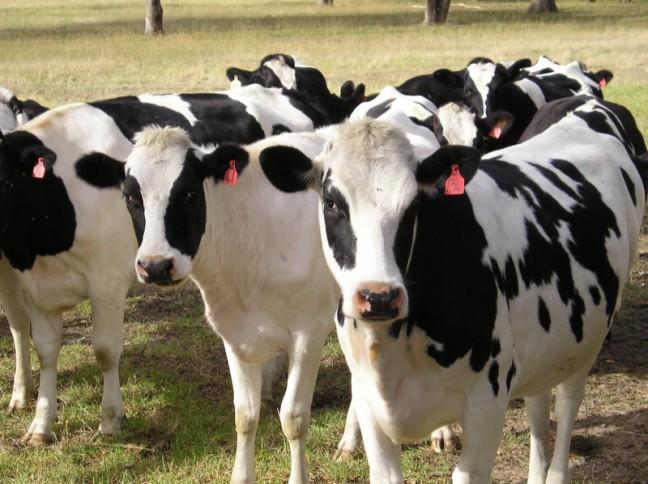An international trade agreement may expand trading opportunities for America’s dairyland, but some experts say the total impact will be minimal.
The American dairy sector exported $7.1 billion in 2014, with 11 countries accounting for $3.6 billion of those exports. Negotiators from 12 countries created the Trans-Pacific Partnership, and now international representatives are seeking approval from their respective countries’ governments.
According to a summary released by the United States Department of Agriculture, the TPP would lift tariffs and increase quotas on many American dairy products going to Japan, Malaysia, New Zealand, Brunei and Canada within the 25 years following passage.
Ian Coxhead, University of Wisconsin agricultural and applied economics professor, said in an email to The Badger Herald it is important to note the U.S. currently has free trade agreements with its two biggest TPP partners, Canada and Mexico, but some of its biggest Asian trading partners, including China, Korea and Taiwan are not TPP signatories. He said 50 percent of total Wisconsin imports already go to six TPP countries with free trade agreements.
But it will become easier for Wisconsin to do business with Japan, Malaysia and Vietnam, Coxhead said. While the impact on trade between Wisconsin overall will most likely be small, he said significant barrier removals by Vietnam will greatly increase foreign ability to participate in the country’s domestic market.
Mark Stephenson, UW director of dairy policy analysis, said the Wisconsin dairy industry is currently in a healthy state and that the TPP will most likely have a small impact but function as a positive step forward by increasing access.
“[Wisconsin] has been growing milk production year over year over the past several years and productivity, milk per cow, has been growing as well,” Stephenson said.
Brian Gould, a UW agriculture and applied economics professor, said the U.S. dairy industry is becoming increasingly dependent on international trade because its rate of growth — production now exceeds domestic demand. He said the sector’s growth industry is international since modern technology enables greater dairy production than US citizens can consume.
Gould said in the past two years, the United States has had record dairy product prices, but this year the strength of the U.S. dollar is causing a return to average. While 15 to 16 percent of milk solids were exported last year, exports have fallen to about 11 to 12 percent this year.
Gould said he thinks the TPP agreement will be most important in trade with Canada. According to the USDA summary, Canada is America’s third biggest dairy export destination and is opening up its available domestic dairy market from zero percent to three.
“The biggest impact I think is going to be with respect to the Canadian developments since we have such a location advantage in relation to other countries,” Gould said.
Gould said New Zealand’s presence in the international dairy market is “huge,” exporting about 95 percent of their dairy products, but under the TPP, all tariffs on imported goods will be eliminated, opening the doors for more imports from around the world.
He said the impact to the U.S. — which did not give up its tariffs or increase its quotas — will be minor compared to New Zealand.
U.S. Senator Mark Pocan, D-Wisconsin, blasted the bill in a statement, pointing to a lack of transparency on the negotiators part throughout the development of the agreement.
“These negotiations, which have been conducted almost entirely in secret, are even more concerning given our apparent adherence to political timelines with little regard to the interests of U.S. workers,” Pocan said.
Coxhead called international agreements “special” since there are a lot of components up for debate, but said a significant amount of trust is placed on U.S. trade negotiators, which can be unsettling.
In the end, Coxhead said the U.S. economy is massive compared to the other TPP countries, so its effects on America will be minimal. He said the biggest impact will most likely be felt in the smaller countries, which currently have high trade barriers.
Gould also said the agreement is “interesting,” but probably will not have a major impact on the U.S. dairy industry. But he said getting rid of politically motivated barriers is not bad from an economic standpoint.
“Looking at this from an economic theory perspective, the freer the trade, the more optimal trade pattern would result,” Gould said. “The overall welfare of the country would be improved and theoretically you can show that.”


















